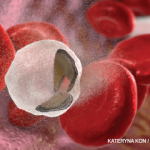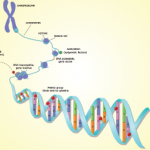Most genetic changes associated with disease do not occur in protein-coding regions of DNA, but in their regulatory regions. Clearly, there is more to the genetics of a particular disease than simply identifying its critical genes. DNA methylation may be one of the key players working behind the scenes to determine whether a disease is phenotypically expressed or remains clinically dormant, locked inside the host’s genetic code. Fortuitously, this interesting work was published around the time of Faye’s visit; she left my office without a prescription (she didn’t need one) but armed with a copy of the paper’s abstract.
Lessons Learned
The term “nature versus nurture” was coined by Francis Galton, a cousin of Charles Darwin, to reflect the balance between heredity and environment on social advancement. Yet this term can apply to virtually all aspects of clinical medicine. The great mystery of why some people become ill and others stay healthy is slowly being unraveled. We are only beginning to observe and understand how environmental stresses can influence the genetics and the phenotype of autoimmune diseases. I think Darwin would have loved rheumatology.
Dr. Helfgott is physician editor of The Rheumatologist and associate professor of medicine in the division of rheumatology, immunology, and allergy at Harvard Medical School in Boston.
References
- Newman AA. A healing touch from hospitals. New York Times. September 13, 2011. P B2. Available at www.nytimes.com/2011/09/13/business/health-care-ad-spending-rises-advertising.html. Accessed February 13, 2013.
- Reuben A. Praise ye the god of iron. Hepatology. 2004;40:1231-1234.
- First U.S. scientist to die of plague in 50 years worked in labs with ‘harmless’ bacteria. Daily Mail Online. February 28, 2011. Available at www.dailymail.co.uk/sciencetech/article-1360783/Malcolm-Casadaban-U-S-scientist-die-plague-50-years.html. Accessed February 13, 2013.
- Allen KJ, Gurrin LC, Constantine CC, et al. Iron-overload–related disease in HFE hereditary hemochromatosis. N Engl J Med. 2008;358:221-230.
- Morris KV. Lamarck and the missing lnc. The Scientist. October 1, 2012. Available at www.the-scientist.com/?articles.view/articleNo/32637/title/Lamarck-and-the-Missing-Lnc. Accessed February 13, 2013.
- Franklin TB, Mansuy IM. Epigenetic inheritance in mammals: Evidence for the impact of adverse environmental effects. Neurobiol Dis. 2010;39:61-65.
- Soubry A, Schildkraut JM, Murtha A, et al. Obesity is associated with IGF2 hypomethylation in newborns: Results from a Newborn Epigenetics Study (NEST) cohort. BMC Medicine. 2013;11:29.
- Klareskog L, L Alfredsson L, Rantapää-Dahlqvist S, et al. What precedes development of rheumatoid arthritis? Ann Rheum Dis. 2004;63(Suppl 2):ii28–ii31.
- Liu, Y, Aryee MJ, Padyukov L, et al. Epigenome-wide association data implicate DNA methylation as an intermediary of genetic risk in rheumatoid arthritis. Nat Biotecnol. 2013;31:142-147.



